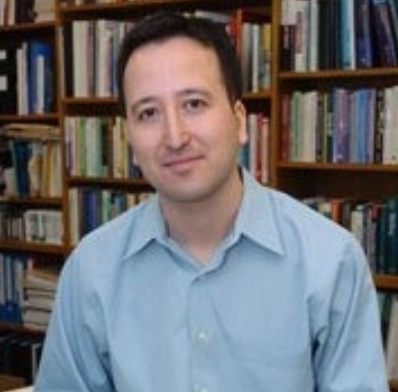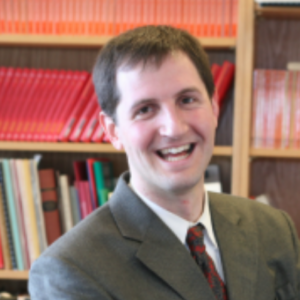2011 Cohort of HGHI Burke Global Health Fellows

Joshua Salomon
PhD
Dr. Joshua Salomon’s research focuses on priority-setting in global health within the three main substantive areas: 1) measurement of population health status and health valuations; 2) modelling and forecasting health outcomes and disease burden; and 3) evaluation of the potential impact and cost-effectiveness of current and future health interventions.
As a Burke Fellow, Dr. Salomon pursued the overall goal of developing and applying a coherent framework for weighing health outcomes in summary health measures (such as disability-adjusted life-years) that are used as inputs to priority setting. His first objective included articulating a clear conceptual basis for assigning weights to health outcomes. The second involved applying this conceptual framework in empirical analysis of survey data collected in the Global Burden of Disease (GBD) 2010 project. The work was successful, leading to a new understanding of disability weights and revisions of the process, as well as a series of publications in the Lancet on the GBD 2010. It has also informed a revision of the full set of disability weights in the GBD 2013.
Dr. Salomon identifies the Burke Fellowship as “a pivot point” in his career. As a junior faculty member, it provided the intellectual support and space to do “rigorous academic research and produce something meaningful for the world.” The Fellowship was ideal preparation for Dr. Salomon’s tenure review, and he was promoted to Professor of Global Health at Harvard T.H. Chan School of Public Health in YEAR. He is also a core faculty member at the Center for Health Decision Science at the Chan School.

Daniel Shapiro
PhD
Dr. Shapiro’s research focuses on a critical aspect of global health: conflict resolution. Violent conflict threatens the physical and mental health of millions of people, and the resultant instability weakens healthcare systems, fosters refugee crises, and creates conditions rife for the spread of disease. Dr. Shapiro researches methods to address the emotional and identity-based roots of modern conflict, and his Burke Fellowship supported the creation of related undergraduate course materials that underpin his course, “Negotiation and Conflict Management: From the Interpersonal to the International” (Global Health and Health Policy 60).
Dr. Shapiro’s dynamic course examines the theory and practice of conflict resolution and has attracted broad interest from across Harvard College. In the course, students explore a new generation of research and practical tools aimed at addressing the rational and emotional dimensions of conflict. The investigation begins with a brief overview of traditional methods of negotiation, including interest-based negotiation. The students discuss the benefits and limitations of these methods. The discussion then moves to the emotional terrain of conflict. While emotions are commonly viewed as a “danger” to get rid of in a negotiation, the class explores how to generate positive emotions conducive to collaboration. Specifically, the students spend several classes examining five core emotional concerns that are important to all humans: appreciation, autonomy, affiliation, status, and role. The students reflect on how to address these concerns to stimulate positive emotions and collaboration. The conversation is informed by the rich literature on emotion theory, negotiation theory, and positive psychology. In the final leg of this course’s journey, the class explores the role of identity in conflict. How should negotiators address deep-rooted, identity-based divisions that can make conflict appear intractable? How should negotiators deal with value-based conflicts? The course surveys literature ranging from negotiation theory to identity theory, and by the conclusion of the course, students gain a much deeper understanding of the theory and practice of conflict management.
HGHI has continued to collaborate with Dr. Shapiro on the course and related learning opportunities for global health students. In his course, he draws on a variety of unique teaching methods, including case simulations, research projects, and the hosting of high-level guest speakers who share their own experiences in negotiating matters of serious global importance. Dr. Shapiro also regularly experiments with new teaching methodologies. For example, in an earlier iteration of Dr. Shapiro’s undergraduate course taught as a Freshman Seminar, he initiated a novel project in which students in the course engaged with world-renowned artist Romero Britto to translate key negotiation concepts into a series of original paintings. In April 2014, HGHI hosted a reunion event among Mr. Britto, Dr. Shapiro, and the former students, in a session open to all members of the Harvard community. In 2015, Romero Britto returns to the class to work with Shapiro’s students on a new set of paintings to depict methods for resolving identity-based differences.
Through this collaboration with Dr. Shapiro, HGHI has provided important pathways for students to engage in learning valuable theory and methods for resolving intractable conflicts and, ultimately, for improving the physical, mental, and social health of peoples across the world.

Kim Wilson
MD
Dr. Kim Wilson’s work focuses on improving health care for underserved populations both domestically and internationally. She combines clinical care to underserved families with implementation of programs aimed at improving care for children with chronic illness. Her involvement in global health care work developed through caring for a largely Dominican patient population in her clinical pediatric practice in Boston, and through conducting maternal, neonatal and quality improvement trainings in the Dominican Republic. The transnational nature of her patients awakened her interest in the “global is local, local is global” phenomenon, compelling her to refine her role in ensuring accessible, quality care for her patients.
As a medical educator, Dr. Wilson seeks to professionalize the practice of caring for underserved populations. This requires a unique skill set incorporating the social determinants of health, and an equity and advocacy agenda to reduce health disparities and influence policy decisions. The Burke Fellowship supported Dr. Wilson to focus on her own professional development in this area. During her fellowship year, she attending seminars centered on curriculum development and pedagogy at the Derek Bok Center for Teaching and Learning at Harvard, Harvard Medical School, and through the Boston Children’s Hospital professional development series.
Dr. Wilson’s focus on professional development has had large positive spillover effects, and her approach directly influences medical students, trainees and peers. She is the Fellowship Director for the Global Pediatrics Fellowship Program and Co-director of Advocacy Curriculum for Pediatric Interns at Boston Children’s Hospital. She also serves as the lead specialist for the pediatric component of her work with the Human Resource for Health Program in Rwanda. At Harvard Medical School, Dr. Wilson is a regular tutor in the Essentials of the Profession course (formerly Introduction to Social Medicine and Global Health). She also teaches in Harvard Chan School’s Child and Society course, focusing on child health disparities in local and global settings.
Dr. Wilson is Assistant Professor of Pediatrics at Boston Children’s Hospital, and a practicing clinician at Martha Eliot Primary Care Center, serving largely underserved, minority and immigrant families.


